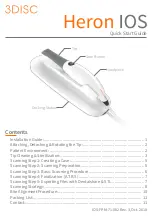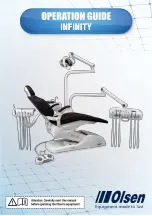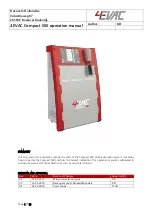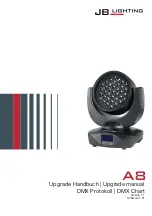
2 - SAFETY INFORMATION
2-9
Decommissioning: Proper Recycling and
Disposal of Fluids and Components
Safety and environmental stewardship measures must be
taken into account when decommissioning a machine and/or
component. These measures include the following:
• Use appropriate tools and personal protective equipment
such as clothing, gloves, face shields or glasses, during
the removal or handling of objects and materials.
• Follow instructions for specialized components.
• Release stored energy by lowering suspended machine
elements, relaxing springs, disconnecting the battery or
other electrical power, and releasing pressure in hydraulic
components, accumulators, and other similar systems.
• Minimize exposure to components which may have res
-
idue from agricultural chemicals, such as fertilizers and
pesticides. Handle and dispose of these components
appropriately.
• Carefully drain engines, fuel tanks, radiators, hydraulic
cylinders, reservoirs, and lines before recycling compo
-
nents. Use leak-proof containers when draining fluids. Do
not use food or beverage containers.
• Do not pour waste fluids onto the ground, down a drain,
or into any water source.
• Observe all national, state, and local laws, regulations, or
ordinances governing the handling or disposal of waste
fluids (example: oil, fuel, coolant, brake fluid); filters;
batteries; and, other substances or parts. Burning of
flammable fluids or components in other than specially
designed incinerators may be prohibited by law and could
result in exposure to harmful fumes or ashes.
• Service and dispose of air conditioning systems appro
-
priately. Government regulations may require a certified
service center to recover and recycle air conditioning re
-
frigerants which could damage the atmosphere if allowed
to escape.
• Evaluate recycling options for tires, metal, plastic, glass,
rubber, and electronic components which may be recy
-
clable, in part or completely.
• Contact your local environmental or recycling center, or
your Kwik-Till dealer for information on the proper way to
recycle or dispose of waste.
Use Safety Lights and Devices
Prevent collisions between other road users, slow moving
tractors with attachments or towed equipment, and self-pro
-
pelled machines on public roads. Frequently check for traffic
from the rear, especially in turns, and use turn signal lights.
Use headlights, flashing warning lights, and turn signals day
and night. Follow local regulations for equipment lighting
and marking. Keep lighting and marking visible, clean, and
in good working order. Replace or repair lighting and mark
-
ing that has been damaged or lost. An implement safety
lighting kit is available from your Kwik-Till dealer.
Observe Maximum Transport Speed
The maximum transport speed for this implement is 20
mph (32 km/h).
Some tractors are capable of operating at speeds that exceed
the maximum transport speed of this implement. Regardless
of the maximum speed capability of the tractor being used to
tow this implement, do not exceed the implement’s maximum
transport speed.
Exceeding the implement’s maximum transport speed can
result in:
• Loss of control of the tractor/implement combination.
• Reduced or no ability to stop during braking.
• Implement tire failure.
• Damage to the implement structure or its components.
Summary of Contents for Kwik-Till HSD2500
Page 2: ......
Page 10: ...1 4 1 GENERAL INFORMATION This Page Is Intentionally Left Blank...
Page 91: ...4 WORKING OPERATIONS 4 25 Fig 4 69 3 Rear Roller Deflector Locations A A...
Page 92: ...4 WORKING OPERATIONS 4 26 This Page Is Intentionally Left Blank...
Page 134: ...5 MAINTENANCE 5 42 This Page Is Intentionally Left Blank...
Page 144: ...8 FORMS AND DECLARATIONS 8 2 This Page Is Intentionally Left Blank...
Page 152: ...i 6...
Page 153: ......
















































